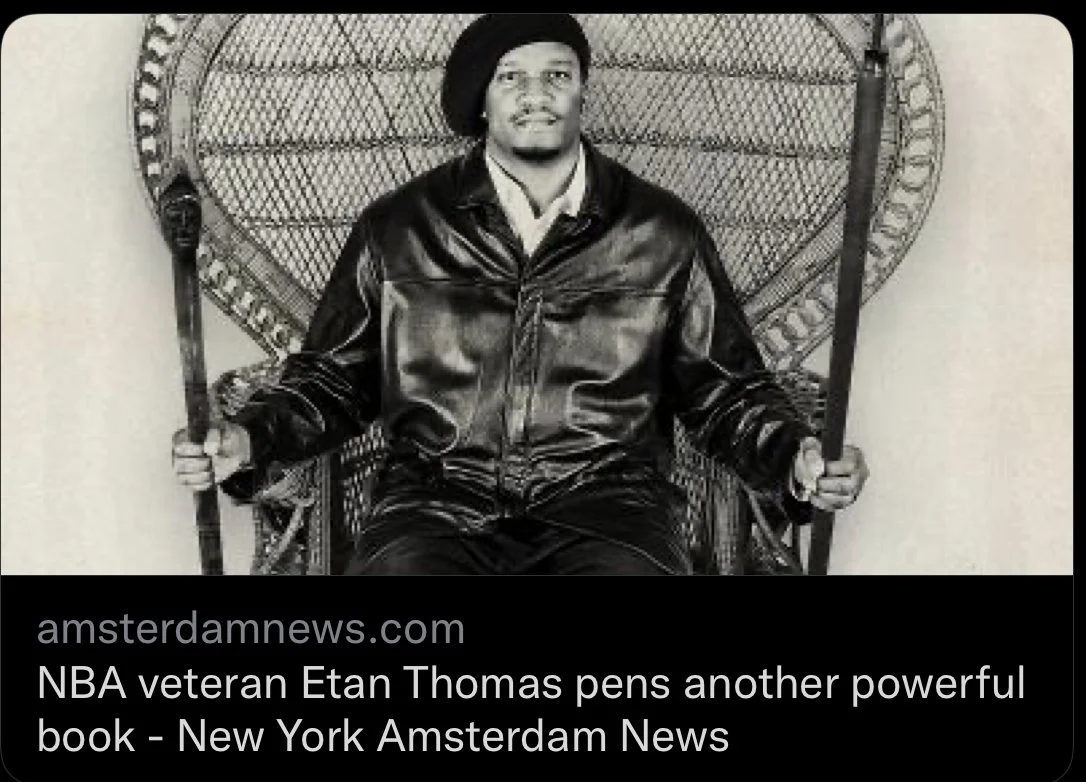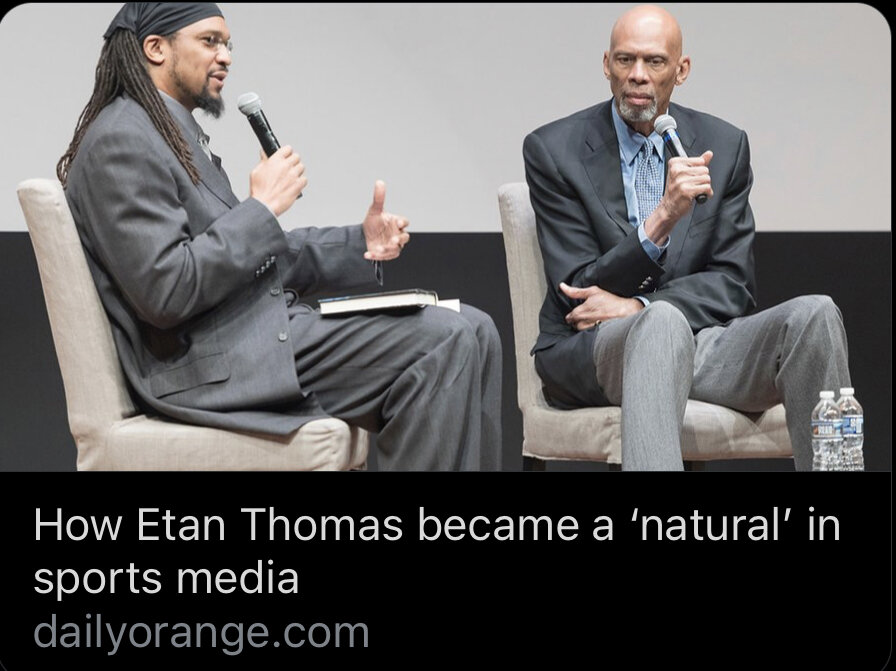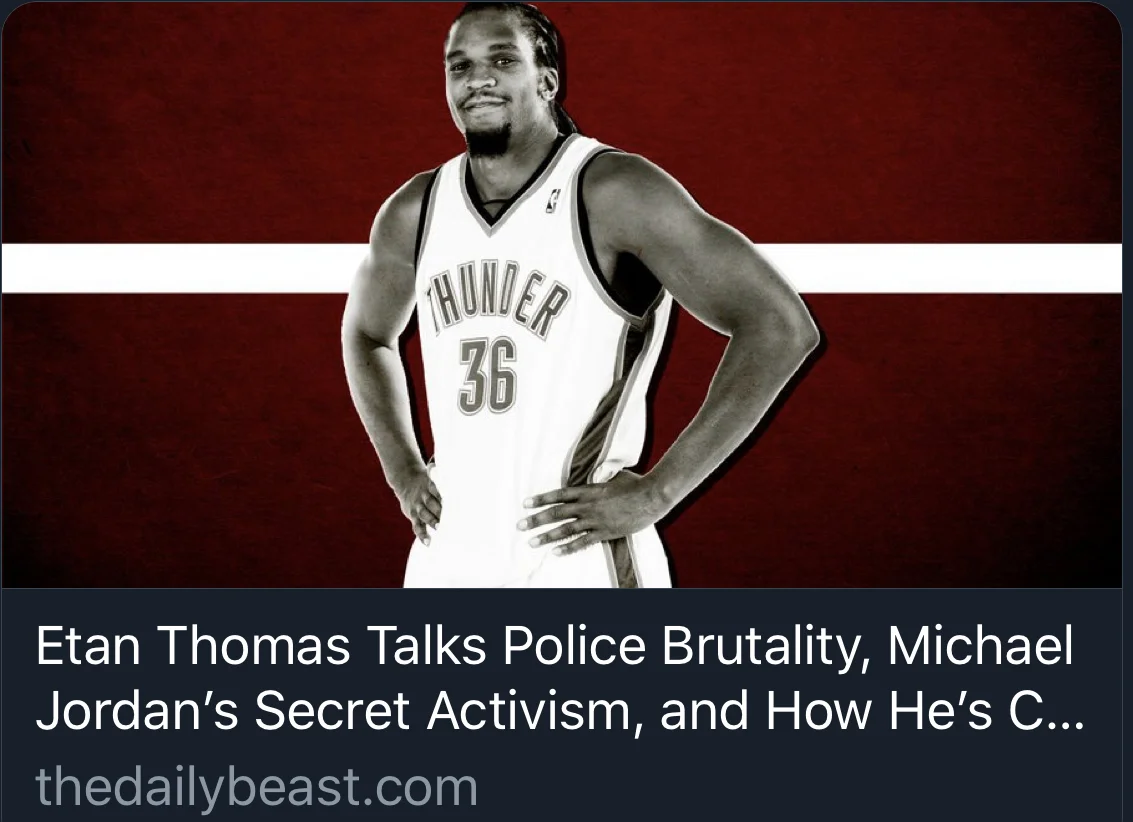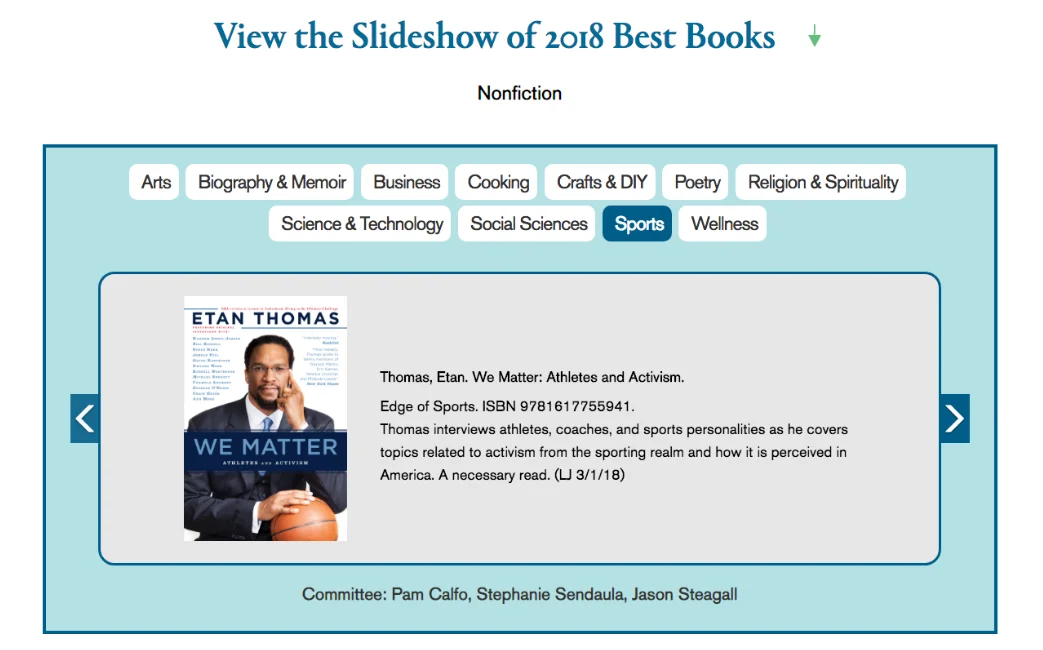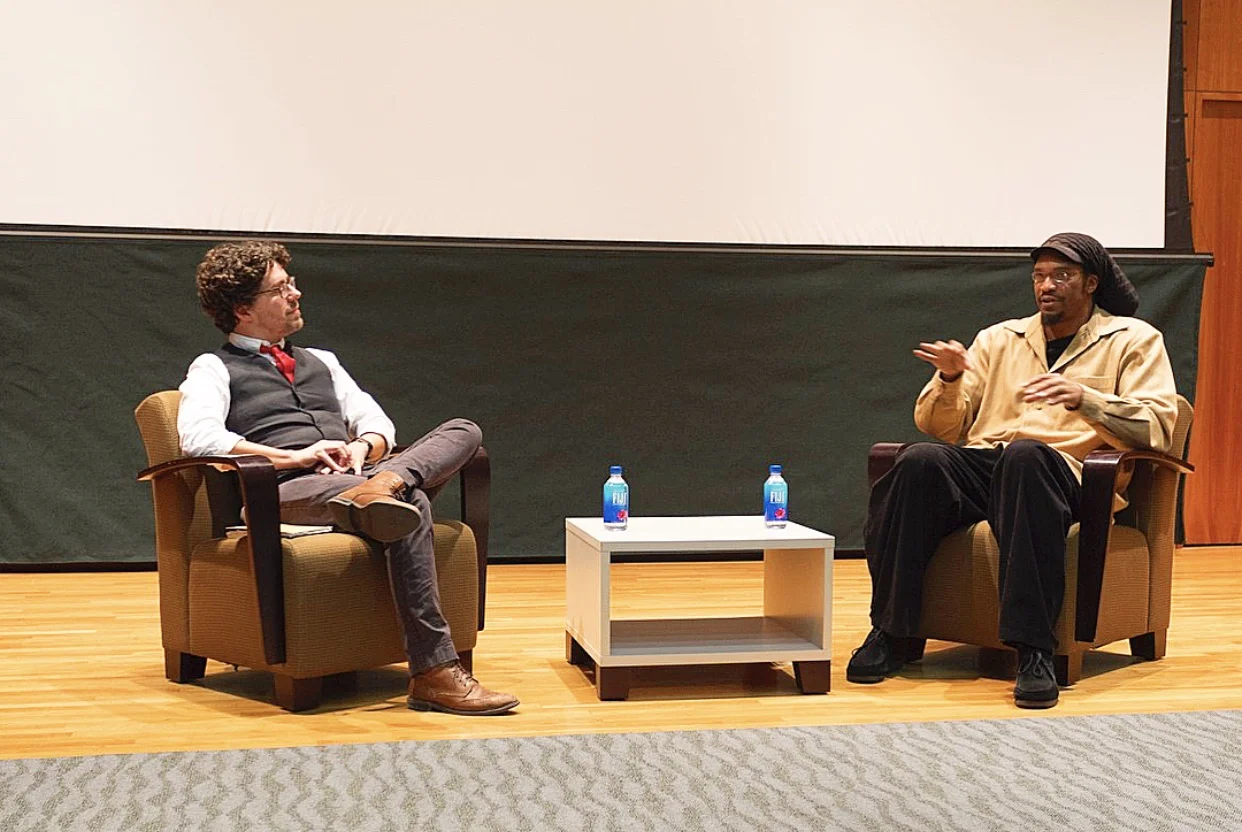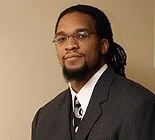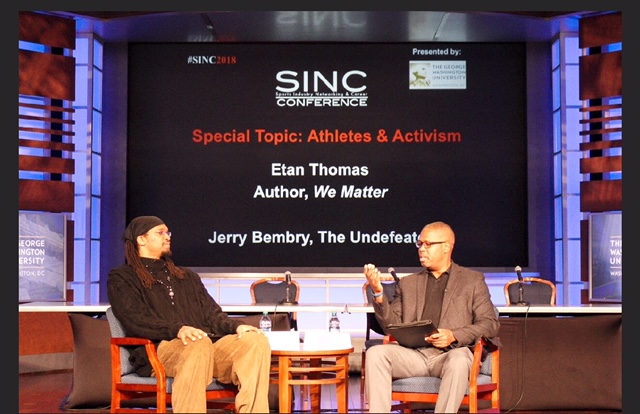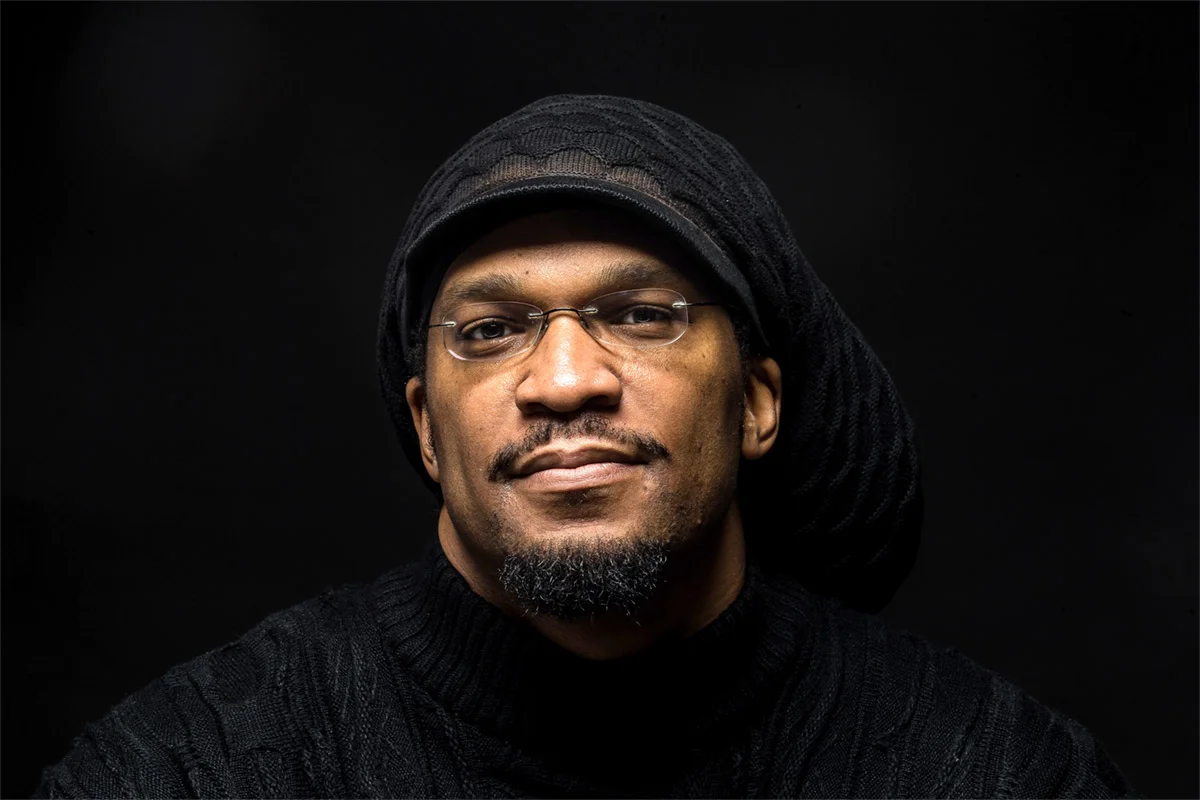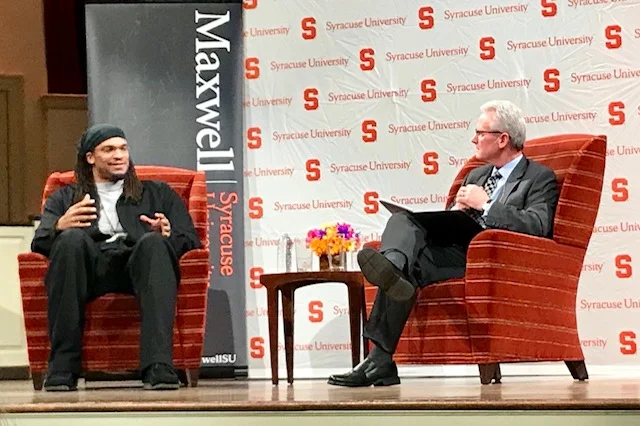By LOIS ELFMAN January 6, 2022
As a follow-up to his 2018 book, “We Matter: Athletes and Activism,” NBA veteran Etan Thomas tackles a pressing issue of the day with “Police Brutality and White Supremacy: The Fight Against American Traditions,” which will be available Jan. 11. The book includes both personal reflections as well as extensive interviews with people such as Rodney King’s daughter, Lora Dene King, and exonerated Central Park Five survivor Raymond Santana.
“There has been so much consistently going on in the area of police brutality,” said Thomas. “From when I wrote ‘We Matter,’ I wanted to capture the reasons that so many athletes were now having this resurgence of athlete activism. Using their voices, and it all centered around police brutality and what was being shown. With the invention of social media and cell phones, now you’re seeing it on a recurring reel. I wanted to dig a little bit deeper into the origins of it.”
Thomas reflects on his first memories of police brutality and how the Rodney King beating affected him. King died in 2012, so Thomas reached out to his daughter to understand how this traumatic event in her father’s life impacted not only him, but his whole family.
“I wanted to go back to those [events] from my time frame and look at solution-oriented possibilities, so I interviewed police officers,” said Thomas, who played 11 years in the NBA. “I’ve been doing this work for a while, and I’ve involved police officers in this work. A lot of the things that I’ve heard them say…are common sense things that should have been implemented a long time ago.
“The whole goal of [the book] was to be able to see solution-oriented possibilities towards police accountability,” he added.
Writing has become a vital part of Thomas’ activism and he appreciates interviewing others to hear their perspectives. For “Police Brutality and White Supremacy,” he interweaves his thoughts and opinions with those of people such as Steph Curry, Chuck D., Isiah Thomas, Sue Bird, Breanna Stewart, Jake Tapper, Jemele Hill, Stan Van Gundy, Kyle Korver, Mark Cuban, Rick Strom and more.
“Hearing people’s perspectives and the way that they’re navigating through multiple, non-stop cases of police brutality and the impact of white supremacy, I wanted it to be eye-opening for everyone who reads it,” said Thomas. “I include my opinions, my stories and my interactions with my children and the impact they have from it. Having to talk with our children, which all Black parents have to do, and the questions that they ask.
“The group that you don’t really hear a lot from is how the family members are impacted,” he added. “That’s why I really wanted to lean heavy on that. … Hearing from them is a different level of impact.”
The chapter Sisters of the Movement features the sisters of Botham Jean, Atatiana Jefferson and Sean Monterrosa. He wanted them to not only tell their stories, but also highlight what they’re trying to do to not see what happened to their family member happen to another family.
Thomas was born in Harlem, raised in Tulsa, Oklahoma, and spent summers in New York City, which included playing basketball at the Boys’ Club. A lot of his early writing was about what he saw in the summers in New York.
Thomas makes it clear that Black athletes and entertainers are not immune from police brutality. When he was traveling and speaking on college campuses about “We Matter,” that conversation always came up. At some predominantly white institutions, there were only a few people of color in the audience. Sometimes people were shocked that superstars such as Carmelo Anthony and Dwyane Wade had had encounters with police.
“They thought we were in this protective bubble,” Thomas said. “Hearing athletes talk about the fear that we have for our children every time we see a case of police brutality, the same way that every Black family in this country has the same fear for their children, made it resonate a bit more.”
A long-time athlete activist, Thomas joined with other Syracuse University alumni to form a group called the Black Oranges (Syracuse athletics is known as the Orange) to support current student-athletes of color. They met with the Syracuse police chief and plan to have other meetings and events in the future.
For now, he looks forward to seeing how Mayor Eric Adams works with the NYPD. Thomas also hopes people will read his book and understand the narrative. He addresses white allyship, which became much more prevalent after the murder of George Floyd.
“I want people to come away not saying that it’s a Black problem or a people of color problem,” Thomas said. “I want them to see this is a problem in America that has been a problem for a long time and something needs to change.”


